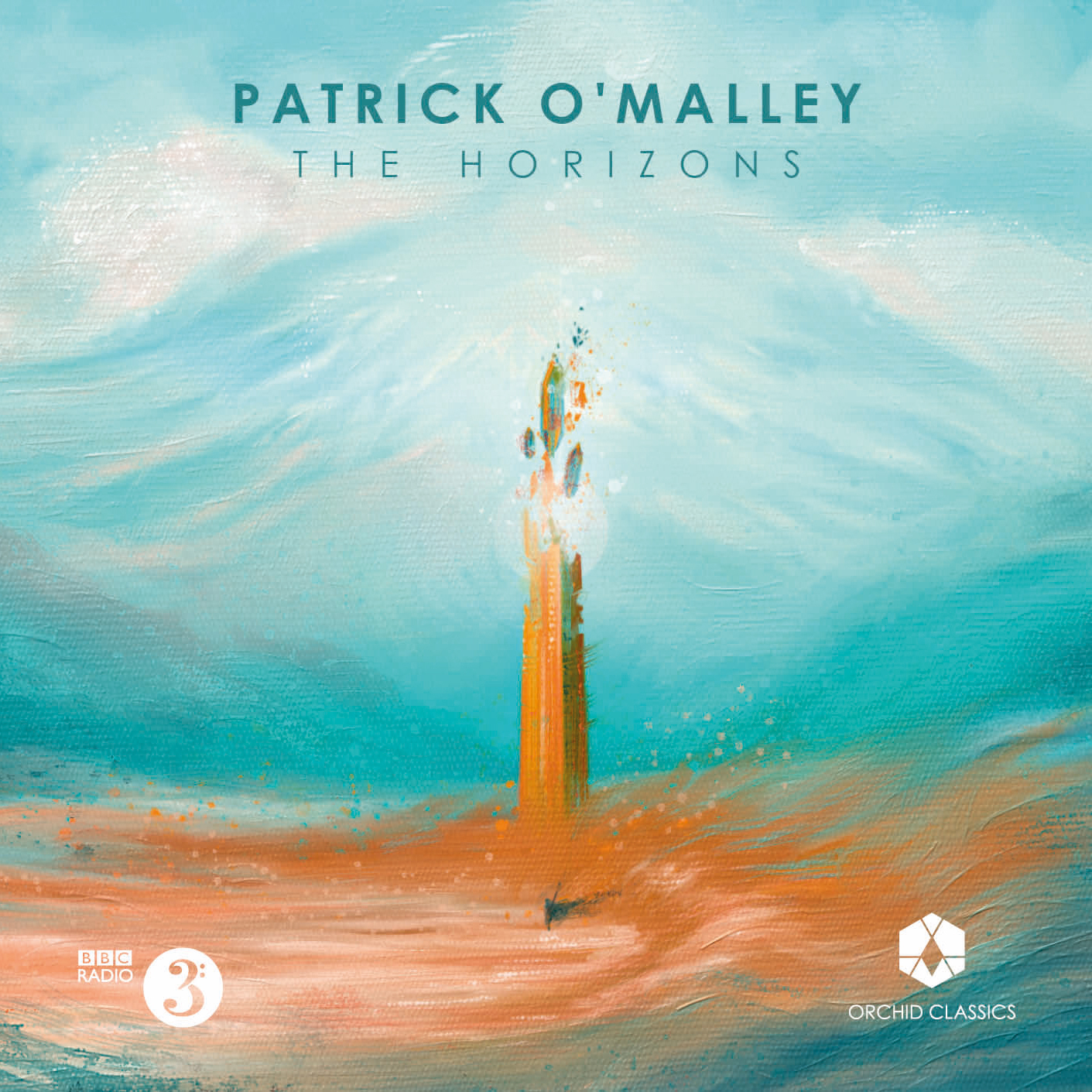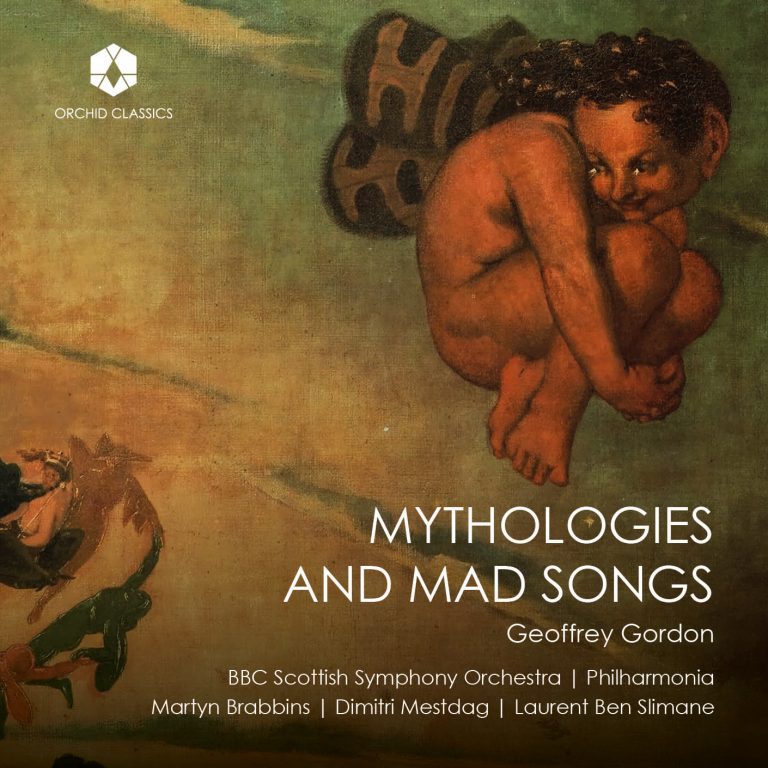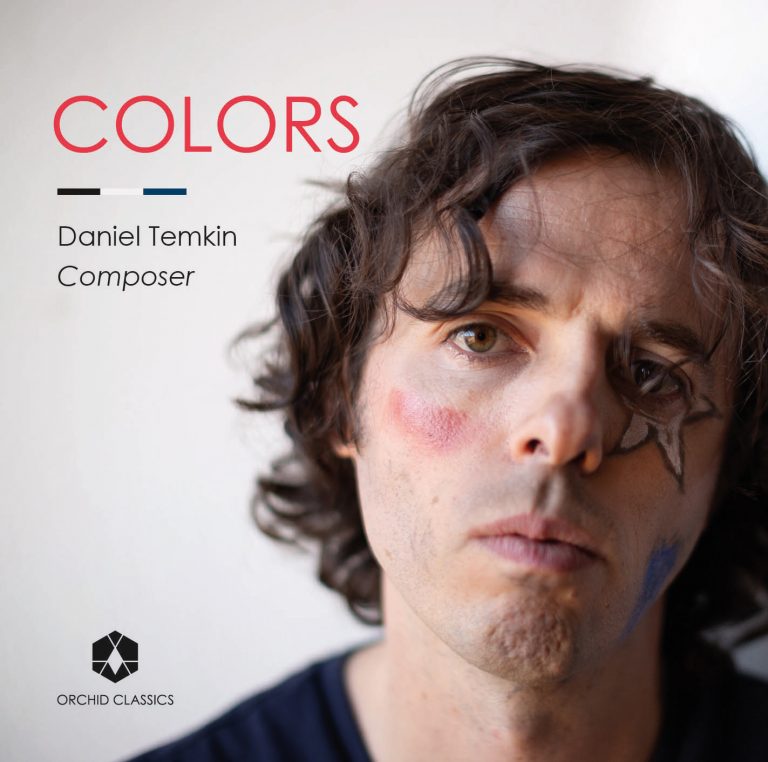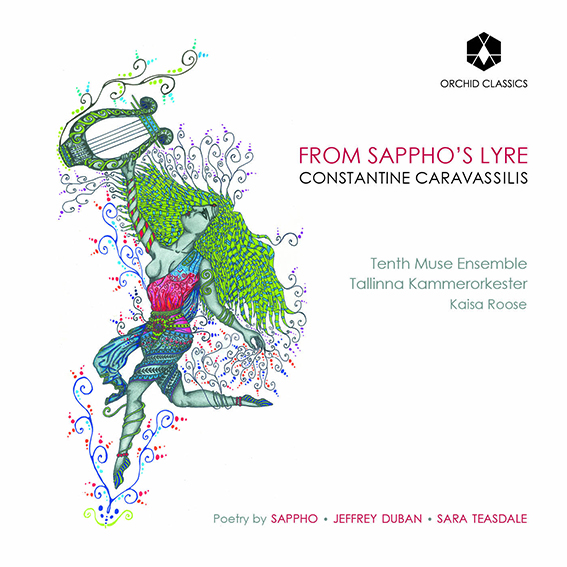Artist Led, Creatively Driven

The HORIZONS
Patrick O’Malley
BBC Scottish Symphony Orchestra
Andrew Constantine, conductor
Brett Deubner, viola
Release Date: June 7th
ORC100303
The HORIZONS
Patrick O’Malley (b.1989)
Concerto for Viola and Orchestra “The Horizons” (2022)
1 I Fantasia – Crystal Visions
2 II Scherzo – Ventures and Motions
3 III Adagio – Solitary Compass
4 IV Finale Deciso 3.36
5 Soliloquy for solo Viola (2020)
6 Obliviana (2021)
7 Rest and Restless (2019)
BBC Scottish Symphony Orchestra
Andrew Constantine, conductor
Brett Deubner, viola
During the course of my musical endeavors, I have occasionally been confronted with the question “Why write for the orchestra?” The answer may at first seem immediately self-evident: it is an incredibly rich ensemble of many different instruments capable of an infinite variety of emotional and intellectual expression, as demonstrated by its substantial canon of works in the classical, theatrical, and media genres. And yet, practicality does perhaps insist on a deeper, more personal justification. Composing (and preparing) an orchestral piece tends to be a huge amount of work, to say nothing of the difficulties in getting an orchestra to perform one’s composition when there are already such quality works it can choose from the canon previously mentioned. In addition, learning to compose for orchestra, despite all of the literature and courses available on the subject, often feels like a perpetual business of trial and error compared to the more immediate feedback of working in chamber music or electronic music production. What can the orchestra do, that other means of music-making cannot, that keeps us writing for it?
I can only speak for myself in this regard, but in addition to the typical advantages of the orchestra (large emotional range, variety of color, virtuosity etc.), I have come to think of it as an ideal medium with which to explore “juxtaposition” and “balance”. As an artist I have often felt a sense of being pulled between multiple worlds: a 21st century composer interested in musical expression rooted in previous centuries, a composer writing in both classical and media music (often very different mediums), a composer brought up in the rural Midwest now working in the endless cityscape of Los Angeles… This has given me a strong (but not negative) sense of “in-between-ness” which has led to often writing pieces that set up different musical worlds and then see how they interact, repel, and coexist. The orchestra gives one both the freedoms and constrictions with which to explore these concepts effectively if not passionately, deriving expression, form, and journey from placing musical characters and feelings in both opposition and parallel. This approach hopefully leaves the audience with a personal sense of meaning, even if the piece in question is largely abstract. The constitution of the orchestra itself personifies this idea with dozens of individuals playing wildly different instruments, creating a sense of cohesion, community, and balance.
The works presented on this album all deal with the juxtaposition and combination of concepts in some way. The viola concerto concerns itself with rejuvenation and maturation; frozen wanderings evolving into bright futures embodied in the image of a grand horizon. While composing the piece in 2022, at the same time coming out of the Covid lockdowns, I felt a strong feeling of capturing this sense of “rebirth” with the concerto, using Brett Deubner’s immense lyricism on the viola to explore a world of both fragility and strength. Even simply beginning to write the piece required me to momentarily abandon the sophistication of my studio and keyboard: having struggled for days to find a satisfactory beginning, it was only when I stepped outside onto the balcony and began to sing to myself (that primordial method of music-making) that a simple three-note pattern emerged with the sound of flutes, and subsequently became the backbone of the majority of the work. The concerto’s beginning also focuses on a micro-duality of static pitch versus melody, with the soloist playing nothing but icy C sharps for the first three minutes before “awakening” into song. Even at this point, the soloist and orchestra do not so much play together as trade off material for almost the remainder of the movement, further exploring a contrast of an individual versus a group. You may very well hear further juxtapositions throughout the work, if not discover some on your own that were rather unconscious on my part. The scherzo (my favorite classical form for dualities) finally combines the soloist and orchestra into a mischievous adventure, using a shining, march-like trio section to suggest a brief respite on the journey. The adagio features the most focused music of the concerto (itself a juxtaposition against the rest of the work’s explorations and energies), from which the music springs forth with the determined finale, gathering a sense of graceful strength that was absent from the preceding movements. I am grateful to Brett for suggesting that we include my solo piece Soliloquy as an encore to the concerto, showcasing his remarkable gift for expressive playing, and the beauty of the viola in isolation.
The remaining half of the album is a true “B-side” in the sense that, while the concerto deals with juxtaposition in a very classical way, Obliviana and Rest and Restless explore juxtaposition with the more extreme side of my voice. Obliviana was conceived primarily out of anxieties and curiosities regarding rapid technological advancement (I was in elementary school when the internet came to our house) and how it compares to “disconnected” states of living. This manifested as enormous, slow-moving chords that break down into chaos, followed by a child-like march of clicking and shining, steadily advancing into the unknown future. In some ways the piece also deals with “rebirth” as the viola concerto does, but filtered through harmonies and images of a science fiction dystopia rather than a virtuoso soloist, and with a more stark comparison of stable and unstable musical ideas. Listeners will hear this most blatantly at the end of the piece when, after several minutes of contrapuntal, multilayered orchestration, the music momentarily converges on a single very loud, intentionally out of tune G sharp in the brass, throwing into question the refined preceding material.
Rest and Restless on the other hand has more terrestrial concerns. Born out of a solo double bass composition, the music moves back and forth between quietly prickly ideas (usually focused in the low register), versus an optimistic (and eventually triumphant) theme that spans the whole range of the orchestra. While writing the original bass version, I remember thinking about how many “slow” movements in classical music are often the most intense emotionally (occasionally even getting fast!), which was fascinating to explore through a bass player’s ability to hauntingly surf between high harmonic notes and low, booming open strings. This large outline of range is what convinced me to “fill in” the piece with orchestration, while keeping several moments of solo writing to preserve the piece’s roots. The term that I keep coming back to when describing Rest and Restless is “emotional landscape” due to its navigation of polarized feelings in the orchestra, as well as my own emotional responses while creating the music.
And speaking of navigating this music, I am enormously grateful to Brett Deubner and our conductor, Andrew Constantine, for championing these works, as well as their passion for making this album a reality. Working with the BBC Scottish Symphony Orchestra, along with concertmaster Bradley Creswick, director Dominic Parker, and librarian Julian de Ste Croix was an immense pleasure, and you will hear their conviction throughout this record resounding from the dream-like venue of City Halls Glasgow. Credit for that lovely sound equally goes to our producer Andrew Keener and engineer Dave Rowell, who well understand this music and were wonderfully collaborative and supportive (I learned a lot from watching them work). My hope is that all these musicians’ efforts will leave you with a sense of why I continually find the orchestra worth writing for.
Patrick O’Malley
The concerto for viola and orchestra by my dear friend and colleague Patrick O’Malley represents all that is exciting about composing for the viola as a solo instrument. He uses the complete range of the instrument and explores a vast array of emotions and hues. When I first listened to Patrick’s orchestral work Rest and Restless, I was immediately drawn to his creative palette and, while there are nods to the great composers like Debussy, Bernstein, and Copland there is something so incredibly fresh in his writing. I was thrilled when he agreed to compose a concerto for me, and it is one of my absolute favorite concertos for viola. Giving the world premiere in Fort Wayne and now recording it with the wonderful BBC Scottish Symphony and Andrew Constantine has been a complete joy, and it is with great satisfaction and a deep sense of thanks and privilege that this amazing work can now be heard worldwide.
Brett Deubner
Programme Notes from the Composer
Concerto for Viola and Orchestra “The Horizons” was commissioned by the Fort Wayne Philharmonic with Brett Deubner as soloist. It was premiered by Andrew Constantine leading The Ft. Wayne Philharmonic on October 29, 2022 at the Embassy Theater in Ft. Wayne, Indiana. The piece is scored for triple winds, standard brass, timpani, three percussionists, harp, piano, and strings.
My viola concerto concerns itself with a process of rejuvenation, beginning in a place of stasis and uncertainty, and moving to a hopeful look towards the future (the Horizons). The piece is in four continuous movements, each exploring a different emotional state and lasting a total of 27 minutes. “Crystal Visions” begins with gently frozen textures in the orchestra, with the viola “trapped” to only playing a single note at a time, like a beautiful tree or statue encased in ice. Eventually the soloist breaks free of this encasement with a simple tune evolving into a flowing cadenza, the orchestra gradually enraptured by its sounds. Filled with a new life heralded by a trumpet fanfare, the scherzo “Ventures and Motions” is a tribute to fun and mischief, sprinkled with more introspective moments as if discovering some evocative scene in nature. “Solitary Compass” explores a scene of contemplation, quietly reflecting on some dream or desire. The “Finale Deciso” rouses the ensemble out of this rest with a short but energetic romp, capturing a spirit of determination for the future.
In order to suggest a sense of growing exuberance, each of the movements is shorter than the previous one; a “reverse-telescope” form that, for me, focusses the experience into an uplifting core of energy. The concerto is dedicated to Brett Deubner with extreme gratitude.
Obliviana was commissioned by the New York Youth Symphony as part of the First Music Program. The premiere was given by Michael Repper conducting the New York Youth Symphony on November 21, 2021 at Carnegie Hall, New York. The work is scored for triple winds, standard brass, three percussionists (no timpani), harp, piano, and strings.
Obliviana is an orchestral meditation on the seemingly endless sprawl of human mechanism and technology versus the timeless stasis of our natural minds and the natural world. I am often struck by the irony of how, as technology has “connected” us in ways previously unimaginable, it has also created new forms of splintering and loneliness. Such thoughts bring to my mind scenes of gilded dystopias and eternal landscapes, simultaneously embracing the oblivions of ruin and unknowing. The music of Obliviana juxtaposes the ideas of “mechanism” and “natural states” in two large sections. The first half of the work presents titan-like chords, slowly moving with grandiose counterpoint. This music is technological in the sense of a beautiful clock or imposing architecture. Suddenly, this tech-music reels out of control, creating chaotic and violent textures. A new chord, a “natural” chord, derived from the overtones of the open strings, begins to assert itself. It is a sonority of simultaneous consonance and dissonance. This chord, growing to the full orchestra, eventually smothers the technological element. There is a moment of serenity, and then something awakens.
The second half of the piece finds a new joy in the apparent bleakness. Harp, piano, and glockenspiel usher in a new energy, with the violent percussion of the first half replaced with delicate waves of clicking. A euphoric texture slowly builds to a delirious state, and the “mechanism” and “nature” ideas try once again to coexist. They briefly intersect on a single immense, unstable note.
Rest and Restless was composed for the USC Thornton Symphony and given its professional premiere by Christian Măcelaru and the New Jersey Symphony Orchestra on July 20, 2019 at Princeton University in Princeton, New Jersey. The piece is scored for double winds, standard brass, two percussionists (no timpani), harp, piano, and strings.
Several of my pieces concern themselves with dichotomies, or pairs of ideas that push and pull against each other. I find that I have difficulty writing unless I have at least two distinct concepts that I can somehow “compose between”. Rest and Restless carries this process out with regards to emotional states; I would describe the piece as an “emotional landscape”. The music slowly alternates, pendulum-like, from low angst-broodings to brighter hopes, back and forth, but without letting either mood “win” over the other. These forces eventually come to a head in a tutti explosion, followed by a stark coda that feels either optimistic or dejected, depending on what mood I am in. Whenever I try to write this program note my mind keeps coming back to an image of looking out of my window in Los Angeles at the evening clouds, my imagination being sparked by the simultaneously serene and troubled shapes of grey. Perhaps this music reflects that fantasy in some emotional fashion.
Rest and Restless was originally composed as a solo for double bass while I was at USC. I was particularly interested in the instrument’s ability to play melody and accompaniment using double stops, and to extend its range upward with the use of harmonics. My decision to orchestrate the piece was based on the impression that these techniques created a texture compelling enough to hear with an orchestral palate. I have tried to preserve the feeling of low, open strings throughout the score, while adding a greater variety of timbres and layers to the melodic passages.
Patrick O’Malley
Composer
Praised as an artist “whose concision is nothing short of mesmerizing” (The American Prize), Patrick O’Malley is an award-winning composer of orchestral, chamber, and media music. He is inspired by mysterious dichotomies in nature and art, writing music that embraces abstract worlds and emotions, with the goal of igniting listeners’ imaginations. His classical works have been performed across the United States and Europe, and his film music has been heard in several American film festivals.
O’Malley has been recognized or performed by organizations including the Albany, Minnesota, Ft. Wayne, and New Jersey Symphonies, the Los Angeles Philharmonic’s Composer Intensive, The ASCAP Morton Gould Award and Nissim Prize, and The Aaron Copland House Residency. He was named Composer of the Year by the Sioux City Symphony in 2018 and made his Carnegie Hall debut with the New York Youth Symphony in 2021. O’Malley served as the arranger and a conductor for the video game concert series Journey LIVE with Grammy-nominated composer Austin Wintory, and he instructs a studio of graduate composition students at California State University Northridge. O’Malley completed his master’s and doctoral degrees in music at the University of Southern California where he studied with Andrew Norman, Sean Friar, and Frank Ticheli. He divides his time between living in Los Angeles, California, and Lake Charlevoix, Michigan.
Brett Deubner
Viola
American violist Brett Deubner has established himself as one of the foremost violists of his generation. As a sought-after soloist who has performed with orchestras on five continents, Deubner has redefined the role of “solo artist” and given the viola a new standing in the world of classical music through his virtuosity, commitment to championing new music and dedication to fostering the next generation’s young artists.
As a concerto soloist, Deubner’s debut with the Grammy award-winning New Jersey Symphony Orchestra premiering Lalo Schifrin’s Triple Concerto resulted in numerous subsequent engagements throughout the U.S. and abroad. Deubner went on to perform worldwide as one of this century’s most important viola soloists appearing with more than 80 orchestras in 14 countries to unanimous approval for “the warmth and sparkling” quality of his playing (Doblinger Press, Vienna). To date Deubner has received over 50 viola concertos composed and dedicated to him and he has made 23 CDs on various labels such as Naxos, Orchid, Centaur, Innova, Parma and Albany to critical acclaim and glowing reviews.
In 2017 Deubner received the United States Congressional Certificate of Recognition for his commitment to music and education. In 2019 Deubner received a Latin Grammy nomination for “Best Classical CD Recording” for his recording of Houston Dunleavy’s Concerto “A Kiss Before the World’s End” with the Orquesta de Heredia of Costa Rica. He is a recipient of the 2022 Global Music Awards Silver Medal for his recording Transfiguration; an album of works by Stanley Grill for two, three and four violas of which he recorded all the parts.
In 2022-2023 Brett Deubner performed 10 viola concertos with orchestras in North and South America as well as Europe. In addition to recording with piano partner Allison Brewster Franzetti in a highly acclaimed debut album Mother Earth, Deubner also released his debut solo album featuring works composed for him. In the fall of 2022, he made concerto recordings in Prague with the Czech Chamber Philharmonic and in Estonia with the Laanesaarte Kammerorkester. In the fall of 2023 Brett recorded the new viola concerto by American composer Patrick O’Malley with the BBC Scottish Symphony Orchestra for Orchid Classics.
A devoted and passionate chamber music collaborator, Deubner has performed with Pinchas Zukerman, Joseph Kalichstein, Andre Michel-Schub, the Tokyo Quartet, Vermeer Quartet, Colorado Quartet clarinetists Guy Deplus and Alexander Fiterstein, as well as flutists Ransom Wilson and Carol Wincenc. Brett Deubner makes his home in the New York Metropolitan area where he is currently on the string faculty of the Aaron Copland School of Music at Queens College in New York. He has served on the faculty of the Round Top Festival in Texas for the past 13 seasons. He plays on a viola made for him by Alejandro Bacelar and is officially endorsed by D’Addario, the world’s largest strings manufacturer, as a solo artist who uses the Kaplan Amo strings exclusively.
Andrew Constantine
Conductor
British conductor Andrew Constantine currently serves as music director of both the Fort Wayne Philharmonic Orchestra and Reading Symphony Orchestra in the United States and was previously associate conductor of the Baltimore Symphony Orchestra. He began his conducting career in Leicester with the Bardi Orchestra and was later awarded an Honorary Doctorate of Music degree by the University of Leicester for his services to music. After winning the first Donatella Flick Conducting Competition he studied at the Leningrad State Conservatory with the legendary teacher Ilya Musin who described him as a “brilliant representative of the conducting art,” and at the Academia Chigiana in Siena. Prior to his move to the US in 2004 he had already gained an enviable reputation as a conductor of great style and charisma, and had also performed and recorded with most of the prestigious London orchestras including the Philharmonia, London Symphony and Royal Philharmonic. With a strong commitment to education and to bringing great music to as wide an audience as possible, Andrew Constantine has developed numerous creative and innovative programmes and was awarded a British NESTA Fellowship in recognition of his achievements.









